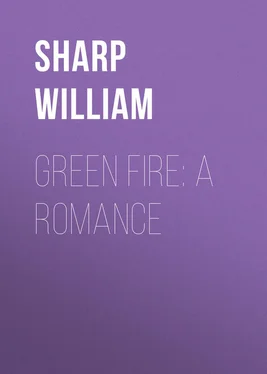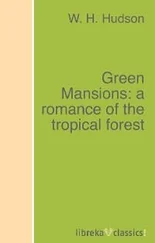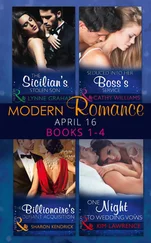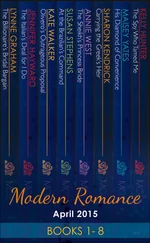William Sharp - Green Fire - A Romance
Здесь есть возможность читать онлайн «William Sharp - Green Fire - A Romance» — ознакомительный отрывок электронной книги совершенно бесплатно, а после прочтения отрывка купить полную версию. В некоторых случаях можно слушать аудио, скачать через торрент в формате fb2 и присутствует краткое содержание. Жанр: foreign_antique, foreign_prose, на английском языке. Описание произведения, (предисловие) а так же отзывы посетителей доступны на портале библиотеки ЛибКат.
- Название:Green Fire: A Romance
- Автор:
- Жанр:
- Год:неизвестен
- ISBN:нет данных
- Рейтинг книги:4 / 5. Голосов: 1
-
Избранное:Добавить в избранное
- Отзывы:
-
Ваша оценка:
- 80
- 1
- 2
- 3
- 4
- 5
Green Fire: A Romance: краткое содержание, описание и аннотация
Предлагаем к чтению аннотацию, описание, краткое содержание или предисловие (зависит от того, что написал сам автор книги «Green Fire: A Romance»). Если вы не нашли необходимую информацию о книге — напишите в комментариях, мы постараемся отыскать её.
Green Fire: A Romance — читать онлайн ознакомительный отрывок
Ниже представлен текст книги, разбитый по страницам. Система сохранения места последней прочитанной страницы, позволяет с удобством читать онлайн бесплатно книгу «Green Fire: A Romance», без необходимости каждый раз заново искать на чём Вы остановились. Поставьте закладку, и сможете в любой момент перейти на страницу, на которой закончили чтение.
Интервал:
Закладка:
To him, moreover, there was but one woman. In Ynys he had found her. This exquisite prototype was at once a child of nature, a beautiful pagan, a daughter of the sun; was at once this and a soul alive with the spiritual life, intent upon the deep meanings lurking everywhere, wrought to wonder even by the common habitudes of life, to mystery even by the familiar and the explicable. Indeed, the mysticism which was part of the spiritual inheritance come with her northern strain was one of the deep bonds which united them.
What if both at times were wrought too deeply by this beautiful dream? What if the inner life triumphed now and then, and each forgot the deepest instinct of life, that here the body is overlord and the soul but a divine consort? There are three races of man. There is the myriad race which loses all, through (not bestiality, for the brute world is clean and sane) perverted animalism; and there is the myriad race which denounces humanity, and pins all its faith and joy to a life the very conditions of whose existence are incompatible with the law to which we are subject – the sole law, the law of Nature. Then there is that small untoward clan, which knows the divine call of the spirit through the brain, and the secret whisper of the soul in the heart, and forever perceives the veils of mystery and the rainbows of hope upon our human horizons; which hears and sees, and yet turns wisely, meanwhile, to the life of the green earth, of which we are part; to the common kindred of living things, with which we are at one – is content, in a word, to live, because of the dream that makes living so mysteriously sweet and poignant; and to dream, because of the commanding immediacy of life.
As yet, of course, Alan and Ynys had known little of the vicissitudes of aroused life. What they did know, foresee, was due rather to the second-sight of the imagination than to the keen knowledge of experience.
In Alan Ynys found all that her heart craved. She discovered this nearly too late. A year before this last home-coming of her cousin, she had been formally betrothed to Andrik de Morvan, the friend of her childhood and for whom she had a true affection, and in that betrothal had been quietly glad. When, one midwinter day, she and Alan walked through an upland wood and looked across the snowy pastures and the white slopes beyond, all aglow with sunlight, and then suddenly turned toward each other, and saw in the eyes of each a wonderful light, and the next moment were heart to heart, it was all a revelation.
For long she did not realize what it meant. On that unforgettable day, when they had left the forest ridge and were near Kerival again, she had sat for a time on one of the rude cattle-gates which are frequent in these woodlands, while Alan had leant beside her, looking up with eyes too eloquent, and speaking of what he dreamed, with sweet stammering speech of new found love.
How she had struggled, mentally, with her duty, as she conceived it, toward Andrik. She was betrothed to him; he loved her; she loved him too, although even already she realized that there is a love which is not only invincible and indestructible but that comes unsought, has no need for human conventions, is neither moral nor immoral but simply all-potent and thenceforth sovereign. To yield to that may be wrong; but, if so, it is wrong to yield to the call of hunger, the cry of thirst, the whisper of sleep, the breath of ill, the summons of death. It comes, and that is all. The green earth may be another Endymion, and may dream that the cold moonshine is all in all; but when the sun rises, and a new heat and glory and passion of life are come, then Endymion simply awakes.
It had been a sadness to her to have to tell Andrik she no longer loved him as he was fain to be loved. He would have no finality, then; he held her to the bond – and in Brittany there is a pledge akin to the "hand-fast" of the north, which makes a betrothal almost as binding as marriage.
Andrik de Morvan had gone to the Marquis de Kerival, and told him what Ynys had said.
"She is but a girl," the seigneur remarked coldly. "And you are wrong in thinking she can be in love with any one else. There is no one for whom she can care so much as for you; no one whom she has met with whom she could mate; no one with whom I would allow her to mate."
"But that matters little, if she will not marry me!" the young man had urged.
"My daughter is my daughter, De Morvan. I cannot compel her to marry you. I know her well enough to be sure that she would ignore any command of this kind. But women are fools; and one can get them to do what one wants, in one way if not in another. Let her be a while."
"But the betrothal!"
"Let it stand. But do not press it. Indeed, go away for a year. You are heir to your mother's estates in Touraine. Go there, work, learn all you can. Meanwhile, write occasionally to Ynys. Do not address her as your betrothed, but at the same time let her see that it is the lover who writes. Then, after a few months, confide that your absence is due solely to her, that you cannot live without her; and that, after a vain exile, you write to ask if you may come and see her. They are all the same. It is the same thing with my mares, for which Kerival is so famous. Some are wild, some are docile, some skittish, some vicious, some good, a few flawless – but… Well, they are all mares. One knows. A mare is not a sphinx. These complexities of which we hear so much, what are they? Spindrift. The sea is simply the sea, all the same. The tide ebbs, though the poets reverse nature. Ebb and flow, the lifting wind, the lifted wave; we know the way of it all. It has its mystery, its beauty; but we don't really expect to see a nereid in the hollow of the wave, or to catch the echo of a triton in the call of the wind. As for Venus Anadyomene, the foam of which she was made is the froth in poets' brains. Believe me, Annaik, my friend, women are simply women; creatures not yet wholly tamed, but tractable in the main, delightful, valuable often, but certainly not worth the tribute of passion and pain they obtain from foolish men like yourself."
With this worldly wisdom Andrik de Morvan had gone home, unconvinced. He loved Ynys; and sophistries were an ineffectual balm.
But as for Ynys, she had long made up her mind. Betrothal or no betrothal, she belonged now only to one man, and that man, Alan de Kerival. She was his and his alone, by every natural right. How could she help the accident by which she had cared for Andrik before she loved Alan? Now, indeed, it would be sacrilege to be other than wholly Alan's. Was her heart not his, and her life with her heart, and with both her deathless devotion?
Alan, she knew, trusted her absolutely. Before he went back to Paris, after their love was no longer a secret, he had never once asked her to forfeit any thing of her intimacy with Andrik, nor had he even urged the open cancelling of the betrothal. But she was well aware his own absolute loyalty involved for him a like loyalty from her; and she knew that forgiveness does not belong to those natures which stake all upon a single die.
And so the matter stood thus still. Ynys and Andrik de Morvan were nominally betrothed; and not only the Marquis and the Marquise de Kerival, but Andrik himself, looked upon the bond as absolute.
Perhaps Lois de Kerival was not without some suspicion as to how matters were between the betrothed pair. Certainly she knew that Ynys was not one who would give up any real or imagined happiness because of a conventional arrangement or on account of any conventional duty.
In Alan, Ynys found all that he found in her. When she looked at him, she wondered how she could ever have dreamed of Andrik as a lover, for Alan was all that Andrik was not. How proud and glad she felt because of his great height and strength, his vivid features with their gray-blue eyes and spirituel expression, his wavy brown hair, a very type of youthful and beautiful manhood! Still more she revered and loved the inner Alan whom she knew so well, and recognized with a proud humility that this lover of hers, whom the great Daniel Darc had spoken of as a man of genius, was not only her knight, but her comrade, her mate, her ideal.
Читать дальшеИнтервал:
Закладка:
Похожие книги на «Green Fire: A Romance»
Представляем Вашему вниманию похожие книги на «Green Fire: A Romance» списком для выбора. Мы отобрали схожую по названию и смыслу литературу в надежде предоставить читателям больше вариантов отыскать новые, интересные, ещё непрочитанные произведения.
Обсуждение, отзывы о книге «Green Fire: A Romance» и просто собственные мнения читателей. Оставьте ваши комментарии, напишите, что Вы думаете о произведении, его смысле или главных героях. Укажите что конкретно понравилось, а что нет, и почему Вы так считаете.












